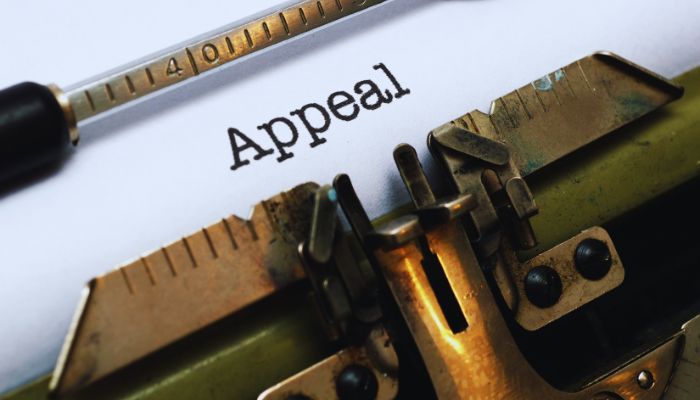
Expertise in Appealing Criminal Convictions
Navigating the complex landscape of criminal law, particularly when it comes to appealing criminal convictions, requires a deep well of expertise and understanding. This first part of our exploration into the appeal process will delve into the foundational aspects of criminal appeals, highlighting the critical role of criminal lawyers, the intricacies of the court system, and the procedural nuances that define the path from conviction to appeal.
Understanding the Appeal Process
At the heart of the criminal justice system is the principle that every individual deserves a fair trial and the right to appeal a conviction or sentence they believe to be unjust. The appeal process is a critical legal recourse, providing a pathway for those found guilty to challenge the court’s decision. This process involves several key stages, from filing a notice of appeal to the actual appeal hearing, and potentially, to the higher courts like the Court of Appeal or the High Court.
The expertise in appealing criminal convictions begins with an understanding of the different courts involved. In the hierarchy of the judicial system,in Queensland appeals from the Magistrates Court usually proceed to the District Court.. Matters that start in the District or Supreme Courts, are appealed to the Queensland Court of Appeal. There is also a possibility, if an appeal from the Magistrates Cour to the District Court is rejected, to lodge a further appeal to the Court of Appeal, although leave of the court will be required. Similarly it is possible to appeal from the Queensland Court of Appeal, to the High Court of Australia, but again special leave of the court is required.
The Role of Criminal Lawyers
Criminal lawyers are the linchpins in the appeals process. Their expertise is not just in understanding the law but in strategically navigating the court process, from the trial court to the higher court. They prepare appeal papers, gather fresh evidence, and articulate legal arguments that challenge the conviction appeal or the sentence imposed. Their role is pivotal in ensuring that the appeal is grounded in solid legal principle and that the appellant’s rights are vigorously defended.
Grounds for Appeal
Common appeal grounds include procedural errors, the admission of inadmissible evidence, prosecutorial misconduct, or the discovery of fresh evidence that was not available during the original trial. In cases of a sentence appeal, the argument may centre around the sentencing discretion of the trial judge, arguing that the sentence originally imposed was manifestly excessive or that exceptional circumstances warrant a lesser penalty.
Criminal appeals often hinge on the ability to demonstrate that the trial was somehow unfair or that the legal process was flawed. This could involve challenging the jury’s verdict, questioning the legal validity of the guilty plea, or highlighting errors in the judge’s sentencing remarks. The expertise of court lawyers is crucial in identifying and articulating these grounds in a manner that is compelling to the appeals court.

The Appeal Hearing and Beyond
The appeal hearing is a critical juncture where the appellate court reviews the conviction or sentence in light of the arguments presented. Unlike a jury trial, this hearing focuses on legal arguments rather than factual disputes. The court may decide to uphold the original decision, overturn the conviction, order a retrial, or alter the sentence imposed. In some jurisdictions, de novo criminal appeals allow for a completely new hearing, offering a fresh examination of the case.
For those seeking to appeal, the importance of timely filing a notice of appeal cannot be overstated. The appeal period is typically strict, and failing to act within this timeframe can result in the loss of the right to appeal. Legal assistance, whether through a private law firm or legal aid, is essential in navigating these procedural waters and ensuring that the appeal is lodged correctly and efficiently.
Strategic Considerations in Criminal Appeals
A successful appeal requires more than just identifying procedural errors or presenting fresh evidence. It involves a deep strategic understanding of the appeals process, the selection of relevant legal resources, and a nuanced approach to legal arguments. This decision-making process is informed by a thorough analysis of the trial court’s record, the identification of appealable issues, and an assessment of the likelihood of success in a higher court.
One of the most critical strategic considerations is the choice of grounds relied upon in the appeal. This requires expertise in criminal law and a keen understanding of legal precedent. Lawyers must articulate why the court decision was incorrect based on legal principle or why the sentence imposed was unjust. In cases involving severe sentences, the argument may focus on the principle of sentencing discretion, arguing that the trial judge failed to appropriately weigh mitigating factors.
The Impact of Successful Appeals
When an appeal is successful, it can have profound implications for the person convicted. It may result in the overturning of a wrongful conviction, the reduction of a severe sentence, or the granting of a new trial under fairer conditions. For individuals wrongly convicted of criminal offences, such as grievous bodily harm or other serious charges, a successful appeal represents a crucial opportunity for justice and the rectification of a miscarriage of justice.
Beyond the immediate impact on the appellant, successful appeals can also influence legal precedent and criminal procedure. High-profile appeal cases, especially those that reach the High Court or the Court of Appeal, can lead to changes in legal standards, the interpretation of the Criminal Code, and the approach to sentencing and bail. These cases often attract attention from legal aid organizations, law firms specializing in criminal defence, and advocacy groups focused on criminal justice reform.

Exceptional Circumstances and Fresh Evidence
The introduction of fresh evidence is a common ground for appeal but requires demonstrating that this evidence was not available at the trial and could have materially affected the outcome. The expertise of criminal lawyers is crucial in presenting this evidence compellingly and arguing for its significance. Similarly, appeals based on exceptional circumstances demand a nuanced understanding of what constitutes such circumstances and how they should influence the court’s decision.
The Role of Higher Courts and Subsequent Appeals
The appeals process does not always end with the first appeal. In some jurisdictions, the possibility of a second or subsequent appeal exists, especially if new evidence emerges or if there are grounds to believe that the appeal court’s decision was flawed. The High Court plays acritical role in these cases, serving as the ultimate arbiter of legal disputes and interpreters of the law. The court’s decisions set important legal precedents that guide lower courts and influence the development of criminal law.
Conclusion
The expertise required in appealing criminal convictions encompasses a broad spectrum of legal knowledge, strategic acumen, and procedural savvy. From the initial filing of appeal papers to the nuanced presentation of legal arguments and the strategic selection of appeal grounds, every step in the process demands a deep understanding of the legal system and the intricacies of criminal law. Successful appeals not only rectify individual injustices but also contribute to the evolution of legal standards and the pursuit of a fairer and more just legal system. As the landscape of criminal law continues to evolve, the expertise of criminal lawyers and the robustness of the appeals process remain pivotal in upholding the principles of justice and fairness.
This article is of a general nature and is intended for information only. It should not be relied upon as legal advice. If you require further information, advice or assistance for your specific circumstance, please contact us at Bouchier Khan Lawyers.
